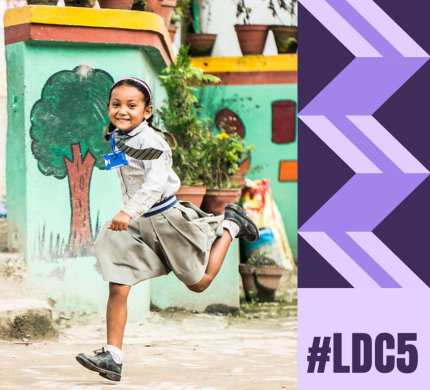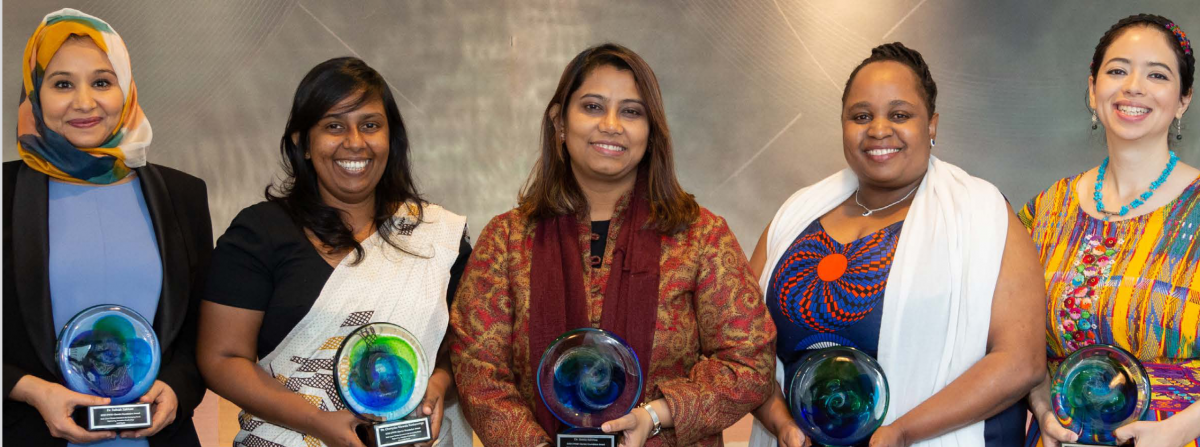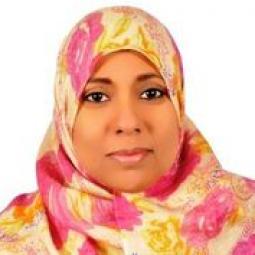OWSD at the 5th United Nations Conference on Least Developed Countries (UNLDC5)
March 02, 2023
OWSD is participating in the 5th United Nations Conference on the Least Developed Countries (LDC5), in Doha, Qatar, from 5 to 9 March 2023, to highlight the role of women in science for the development of LDCs and present the impact of our programmes.
OWSD is participating in the 5th United Nations Conference on the Least Developed Countries (LDC5), in Doha, Qatar from 5 to 9 March 2023, to highlight the role of women in science for the development of LDCs.

The LDC5 Conference takes place every ten years and aims to identify and address the major challenges faced by the world's 46 least developed countries (LDCs), bringing together government officials, development experts, civil society representatives, and other stakeholders to discuss the progress made by LDCs towards achieving the Sustainable Development Goals (SDGs) and to identify the steps needed to accelerate their development.
In particular, on 8 March, to coincide with International Women's Day, OWSD has organised a panel session at LDC5 on 'Becoming Leaders: Young Women Scientists from LDCs share their stories'. OWSD Early Career Fellows and Awardees from Rep. of Congo, Nepal and Yemen will tell their personal stories and OWSD Vice President for Africa, Babalola Ulubukola, will describe her journey from one of the first cohort of OWSD PhD Fellows to Vice President of TWAS. We are honoured that the session will be opened by the Honourable Minister for Higher Education, Research and Innovation Technologies of the Republic of Congo, Delphine Edith Emmanuel. The Panel will be moderated by Tonya Blowers, OWSD Coordinator.
Date: Wednesday 8 March, Time: 14:00-15:30
Venue: Qatar National Convention Centre, Room 104
OWSD programmes and LDCs
In the past 30 years, the Organization for Women in Science for the Developing World (OWSD) has been working tirelessly to promote and support women scientists in the developing world, by providing research training, career development and networking opportunities for women scientists throughout the developing world.
Through its programmes and initiatives, OWSD has contributed to the emergence of a new generation of women leaders in science and technology, and promotes their effective participation in the scientific and technological development of their countries, with a special focus on Science- and technology-lagging countries (STLCs), which include all 46 LDCs.
- Membership. OWSD full members are women living in developing countries with postgraduate degrees in science and social science subjects. OWSD has more than 9,000 OWSD members, and of these 1,782 come from 38 out of the 46 LDCs, including countries like Afghanistan, Central African Rep., Chad, Guinea and Haiti.
- National Chapters. Countries with more than 20 members establish OWSD National Chapters. They identify the specific challenges women face in their own countries and organise events and provide resources and training opportunities for local girls and women in STEM. The number of OWSD national chapters continues to increase dramatically, with 7 new national chapters established in 2022, bringing the total to 51. Currently, National Chapters have been established in 14 LDCs: Bangladesh, Haiti, Malawi, Mozambique, Nepal, Niger, Senegal, Sudan, Yemen, Myanmar, Rwanda, Uganda, United Republic of Tanzania and Zambia. National chapters allow OWSD to have direct and updated data on the current situation of women scientists around the world, and to be in constant conversation with their executive committees. These conversations and surveys feedback directly into the design and implementation of our programmes.
- PhD Fellowship programme. Young women from 66 STLCs (which include all 46 LDCs) undertake PhDs at a host institution of recognized research excellence in the Global South. This highly successful programme has awarded 576 fellowships to women scientists based in developing countries, with 360 PhD graduates overall (by end 2022) and 156 fellows ongoing. Through the PhD Fellowships programme, generously funded by the Swedish International Development Cooperation Agency (Sida) for 25 years, OWSD has awarded 320 PhD Fellowships to women from LDCs – 56% of the total Fellowships awarded. Currently, the percentage of active fellows coming from LDCs is even higher (62%). More than half of the PhD fellows who have graduated to date, come from LDCs. Sudan, Bangladesh and Myanmar are the top 3 countries of OWSD PhD graduates overall.
- Early Career Fellowship Programme. A prestigious award of up to USD 50,000 over 3 years is offered to individual women who have completed their PhDs in Science, Technology, Engineering and Mathematics (STEM) subjects and are employed at an academic or scientific research institute in one of the 66 Science and Technology Lagging Countries (STLCs) described above. Early Career fellows are supported to build up high-quality research activities, laboratories, and groups. By the end of 2022, thanks to the generous support of the Canadian International Development Research Centre (IDRC), 91 fellows have been awarded under this programme, 48 of which are from LDCs.
- OWSD-Elsevier Foundation Awards. The OWSD Secretariat has co-designed a high-profile awards scheme with The Elsevier Foundation, operative since 2013. The annual awards recognize and celebrate the achievements of 5 or more early career women scientists in the South who have worked hard against social, economic and cultural pressures to achieve internationally competitive results in research areas related to the United Nations Sustainable Development Goals (SDGs). As of today, 19 Awardees out of 59 are from LDCs (Bangladesh, Yemen, Nepal, Rwanda, Sudan, Uganda and Benin).
OWSD welcomes your enquiries, support, partnership and donations. For more information please contact owsd@owsd.net












































